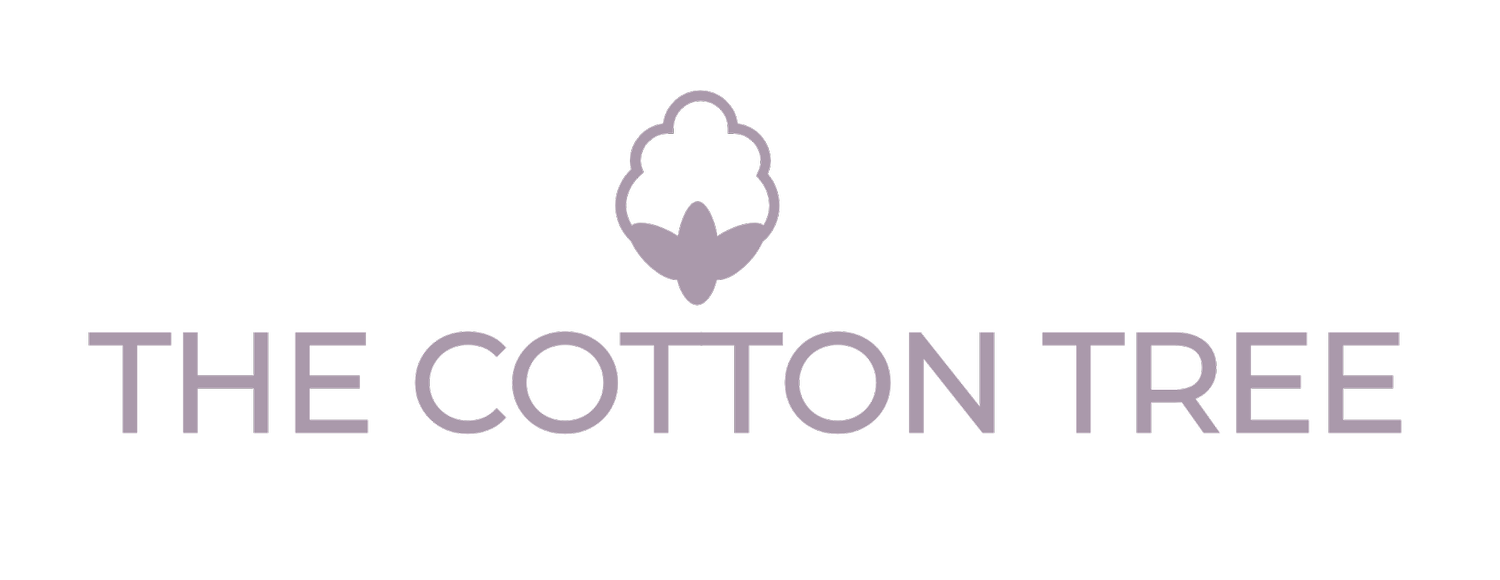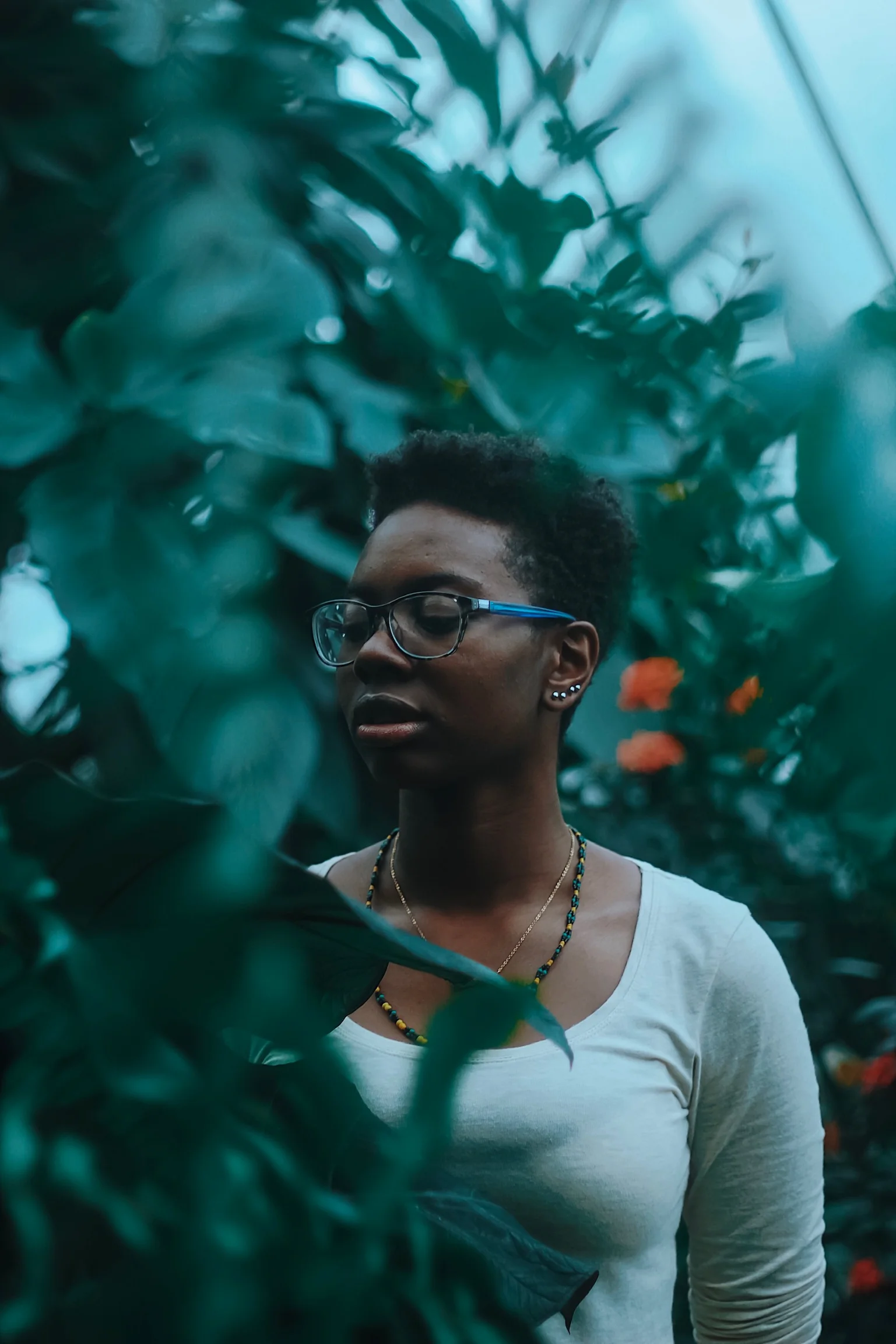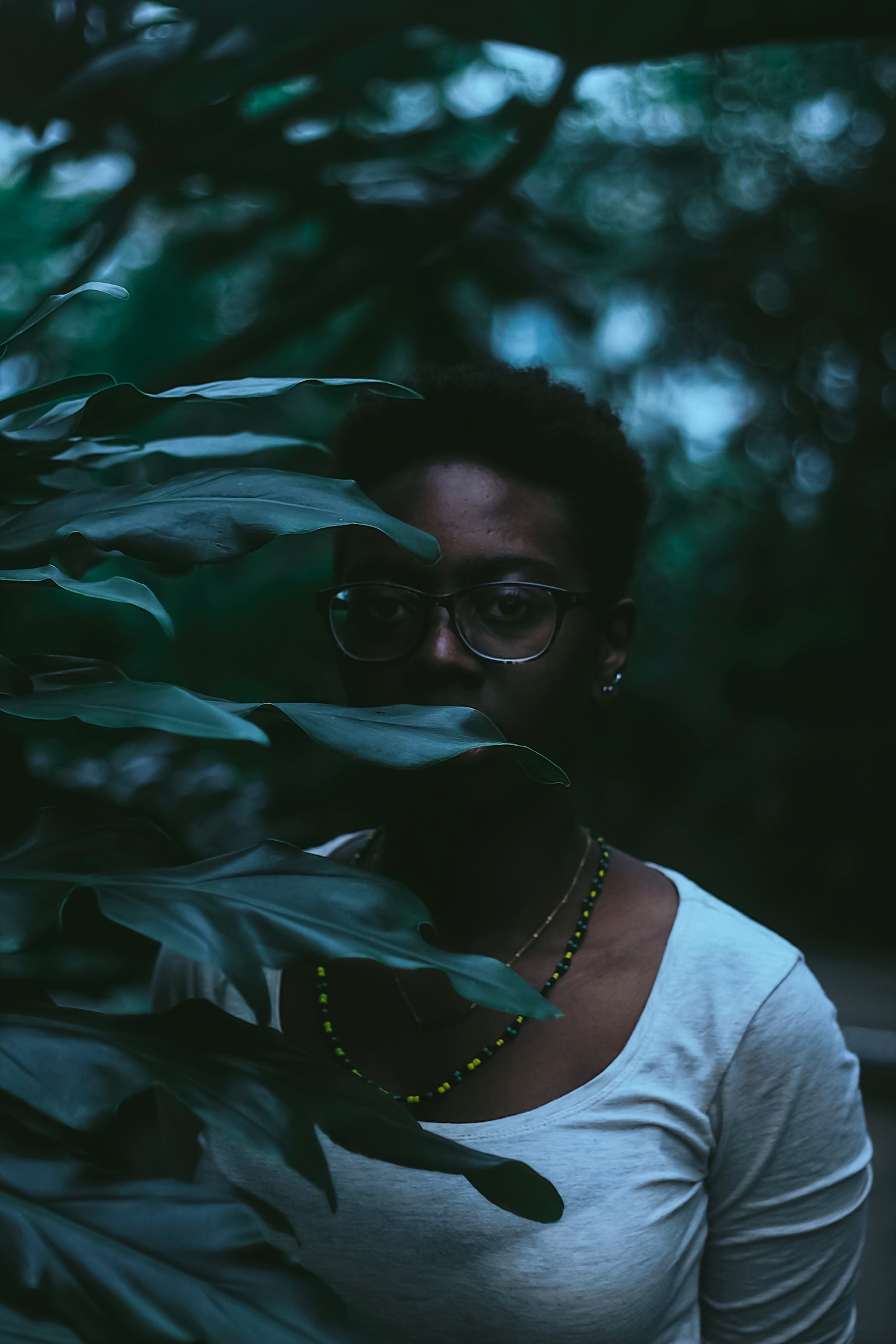Black, an adjective.
“of the very darkest colour owing to the absence of or complete absorption of light”
“belonging to or denoting any human group having dark colored skin, especially of African or Australian Aboriginal ancestry”.
Black, a verb.
“make black, especially with polish”
“refuse to handle goods, undertake work or have dealings with a person as a way of taking industrial action”
“characterized by tragic or disastrous events; causing despair or pessimism”
ARCHAIC - “very evil or wicked”
The above are definitions I found for the word Black on google. A lot of the definitions are synonymous with negativity. Why is that? Why is it that the very word used to class the colour of my skin is so steeped in negativity? I’m convinced that Black people have not always been classed by the term as race is a social construct. I feel as if this label, steeped in negativity, was forced on us as we had our identities stripped away by oppressors. However it is a label that we have and must now live with in our present society. Our lives are now rooted in this oppression and we have to do our best to remind the world that despite this, we are not shaped by our labels.
Black Excellence is just this, it is the collective result of us as a people overcoming the negativity rooted in our labels, tearing down boundaries and rejecting oppressors. I’m choosing to highlight people who are trying their best to overcome the obstacles of the oppressor’s interpretation of blackness and create for themselves and others a positive narrative and perspective on what it means to be black.
I’ve been sitting down on this exchange for quite some time, since December 2018, and If you look on your calendar you can see that it is now March. I’ve been absent as I’ve been focusing on my final year coursework at university. However, instead of letting this sit in my drafts waiting for a time when I could fully invest in creating content, I decided to let the world see this conversation. Why? you might ask. Well, today is International Women’s Day and Jemmar Samuels, this young black woman who you’re going to learn a bit about, strives for black excellence and advocates black feminism and I have grown to appreciate and admire her and her work. In honour of #IWD, I am choosing to allow the voice of young black women and their stories to be shared, because too often people forget about our stories.
Q: When you hear Black excellence what comes to mind?
A: So much comes to my mind, all of which comes under one of two subgroups. One group is the generic social media accepted idea of Black excellence or my own understanding of Black excellence. I see black people who are educated, not just academically but culturally. Yes, they got A+’s in their exams and went to the top schools and have bright futures but I see people who know who they are; they are in touch with their respective homeland. I see money and wealth, but not any kind of money and wealth. Name brand clothing, houses and cars, yes, but a foundation to start generational wealth.
I also see Black men I suits…like ones which work in the corporate world.
Q: How early in life did you realize that it would be harder for you to progress?
A: From a young age, my mother told me I would have to work harder than most in this life because I am black and I am a woman. I was scared at first, worried constantly about what would that actually mean. Growing up in South London, I later realised that being working class was another factor to consider. There are certain privileges having money and connections does for you to progress in life that many working class people like my family do not have. It’s partly why I do a lot of things because I know if I want to be the best I must stand out because I competing with those who have a lot more than I do at their disposal.
Q: In your life, you are currently doing so many things. What were your motivations for choosing to be involved in these areas?
A: Everything I do stems from me wanting to get my message out into the world. It is that Black girls are beautiful whether you agree or not, whether you find us attractive or not, we need to hear it because we do not.
I went through years of self-hate after being severely bullied. I hated my complexion, my hair, my features—lips, noses and eyes—I hated me. I was told I was ugly, directly and indirectly. I then attempted to “fix the issue”, I was skin bleaching, perming my hair and I considered lip and nose surgery.
I thought my experience was a standalone one, but, through the internet I found out many Black girls could relate. I soon did my research and found out about colourism and hair texture discrimination. I wanted to get this message out.
At 16, I joined The Advocacy Academy, a social justice programme that teaches young people to be activists. By the end of the programme, I knew what my message exactly was, I knew how to make people receive and make then want to do something. I then needed a platform. Interacting with the programme, now as an alumnus, I get a reminder of one of my motivations, the fact that there are young people going some real deep and complex issues they think they are alone. That one simple change in policy or legislation would have made a world of difference to them, to us.
I started to write articles and became a writer; I started to facilitate workshops and became a facilitator. I started to speak publicly and I became a public speaker. With each passing week, month and year I expand on the platforms I use to get my message out. The reason behind my message, 12-year-old Jemmar, my little sister, my nieces, my friends and every little Black girl around the world motivates me. I use my voice to represent all those who look like me, who can relate to me, to share out experiences.
Q: How important is it for you as a Black person to be successful and what does that mean to you?
A: I think as a Black person, it is incredibly important for me to be successful. My boys like to tell me I am an inspiration to the young ones in the ends. My little sister often tells my mum she wants to be like me when she grows up. There are so many people younger than me that look up to me and my achievements and I tell them they can achieve similar ones too. My success is not just my own, which means sometimes I feel pressured but I try not to think about it.
Being successful, to me, is achieving all that I want to achieve. At this point in time, people put this pressure on me to be amazing and successful and do things all the people around cannot do. Yes, there are some things which I regard as a success, like winning a BAFTA but there are also some accomplishments which mean success to me, like being featured in my local newspaper and my the corner shop guy jokingly hitting me for not letting him know beforehand.
Success to me is when in old age, I can look back and even with all my failures and loses, say I am still pleased with my life. In many ways, I have ideas of the potential paths my life could take. The end goal is to be content after bringing about change.
Q: What do you think black people need to do as a collective to be more productive people?
A: In order for Black people as a collective to be more productive the solution varies depending on things like class, gender, sexuality, faith and other intersections. But overarchingly, I would say education, but it will be personalised, making up for what a person is lacking. Education on why you do x and not y. Ignorance is really bliss and people will walk around and do things which benefit absolutely no one because they do not any better.
For me, a lot of my drive comes from education and the understanding of what those who have come before having gone through. Whether it’s ridiculously important to vote in local elections as much as national ones, therefore I vote. Or they enter a space as a Black woman and unapologetically dominant because once Black women were not allowed to even be there. I educated myself on how important it is to have good mental health, not just for the benefit of me, but for the benefit of those around me.
Q: Do you think that you embody Black excellence? Why or why not.
A: I can honestly say I do not. I set myself goals and I rarely achieve them. I see tend to plan ahead, think ahead, I could easily tell you several potential career paths I’m currently interested in for the next five years. My life rarely goes to plan.
People around me often whether jokingly or not tell me what they think of me. How they think I am and my what they think my work ethic is like. My work ethic is poor, I’m last minute, disorganised and unstructured. But because I know myself, I can always pull through. If I had a lot of things together in my life, what I would accomplish would be amazing and then I would embody Black excellence without a doubt.
I have my idea of Black excellence, and I can see why people put me into that. However, I’m not my definition of Black excellence and that’s why I do not think I embody it. I kind of see Black excellence as a something which says, “This Black person has surpassed the standard originally set by non-Black people of Black people”. Like despite having the odds stacked against them, they excelled. But the odds have destroyed and crashed my ambitions at times. I have called the odds out and changed them. That’s another reason why I don’t see myself necessarily embodying Black excellence.
But I must say, I have achieved a lot, I’ve achieved things which some only dream of, so I have to rate myself and say I'm someone’s idea of Black Excellence.
Q: If you could give advice to a young person with similar struggles to yourself, what would you say?
A: I’d first let them know that self-love is a life-long journey and by the milestone ages like 16, 18 0r 21, they most likely won’t completely love themselves. That they will have bad days but to one day say “I like me” should be one of if not your only goal in life. This is one gem I took from Michelle Obama’s talk at Southbank.
Another piece of advice is that you will constantly be in the process of “becoming”, Michelle hates the question of “What do you want to be when you grow up” it’s so finite. And for me, someone who’s constantly anxious about failure, I hate it too.
I do not have a defined career path, and I often panic about what exactly I am becoming, but deep down, I know that whatever I am becoming is great and I should be pleased with that. If one day I no longer like what I am becoming, then, I can change. It’s not hard.
Q: Why do you think young black people find it so hard to make a way for themselves in life?
A: I think we are at a disadvantage; economically, socially, politically, this can be applied to most societies which Black people live in whether as a minority or majority. The system is set up that way, for us not to progress, and if we do, it’s a few. To make way in life, you have to work a certain path, if that path does not exist, for something like you, in this case, Black, then you’re already disadvantaged. You now have to create this new path—this new lane.
Another thing to consider is that you have to be ready. Have you got everything you need? Your water, sunscreen, snacks, money, oyster. All those extras made the journey easier, but no says you need them or tells you where to get them. Those added essentials are things like being mentally okay, physically okay, educated on the path ahead, having a network and connections.
I overthink and overanalyze which at times is a pain and stresses me, but if situations like this. It helps me prepare for the long journey, it prepares me for the way I’m making for myself.
Q: What are your plans for the future? Where would you like to see yourself?
A: I have a lot of plans for the future, there’s so much I would love to do. I want to be a writer and a journalist but be the author of books about politics an social justice. I want a masters degree in political science, maybe comparative politics or public policy.
I am currently working on a social action project around gender-based violence in the Caribbean. I’d like to see myself having a career which allows me to have complete creative freedom. Content creation is something I would love to explore. I currently have a sudden interest in videography, maybe that’s something to expand on, or maybe it'll pass.
I see myself having a range of skills and talents. I see myself still learning and growing—becoming.
Q: What struggles or obstacles would you say you faced to get to this point in your life?
A: The struggle of self-hate and severe bullying, I hated my skin, which led to skin bleaching, I hated y 4C hair, which led to me perming (creaming) my hair. I planned on changing my facial features, reducing the size of my nose and my lips. People often ask me why I thought I was ugly, they get really when I said I was often told I was ugly to my face by family and friends.
This killed my self-esteem, Jemmar in a few years time would be beautiful the way I was told to be. My education did not matter, Black excellence did not matter. I didn’t even want to be Black.
I consider this to be a struggle but serious identity issues, being born in the UK but having been brought up in Jamaica. Do I have the age-old identity clash of which one can I claim? And then I have the clash of what others say I can claim. How intervened my experience is. How I can partake in UK Black Twitter and discuss drill music but also I can discuss how amazing Kartel was from like 2008-2012.
Another struggle is my mental health. People say it all the time but I don’t think they understand that self-care isn't a cute and easy process. I have serious issues with people others needs before my own and being a people pleaser. I often put my mental, physical and emotional health all at risk for those who have their own shit. But I’m unlearning. I’m trying to say no more, to not try and be everywhere for everyone. Trying to listen to my body when it says, I need rest. Considering why I am doing something. Is It for the benefit of others or myself. For a long time, I’ve been an activist representing others, but what about Jemmar?
Q: What do you want people to remember you for?
A: A part of me doesn’t want to me to be remembered, just what I do. But I’d be lying if I did not say that, I want to make people proud. Proud to be Jamaican, to be from the Caribbean, to be a Londoner, to be South, to be Black, to be a Black woman, to be average, to be overlooked and underestimated, to be genuinely different, to be themselves. Some of these groups of people are just personal satisfaction and others because it's needed.
I want to be remembered for:
For my work.
For the books I write
For the documentaries, I might make.
For the platforms I create.
For the change, I bring about:
To policy.
To the workplace.
To the community.
To the endz.
To the Caribbean.
I’m high key petty, so I want people to remember when they doubted me. That they did not support me. How they made me feel and for what, if I didn’t have the faith, strength and patience to push through it could have affected me.
Jemmar Won a Children’s BAFTA for a short documentary on her life and struggles with colourism entitled “What Do You Mean I Can’t Change The World”












